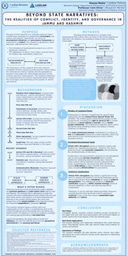Navigating Silence: Overcoming Censorship and Fear in Researching
Securing interview participants for this research surrounding the Kashmir crisis was a daunting endeavor, influenced by pervasive media censorship and a political climate intolerant of dissent. This presented not merely logistical complications but also posed foundational challenges to the epistemology of the research.
To overcome these barriers, a methodological adjustment was deemed necessary: the assurance of anonymity to participants, accompanied by a validation of their credentials to uphold the rigor of the study. This anonymization was not a mere safeguard; it became an ethical imperative given the precarious environment of the study locale.
The interviews yielded deeply affecting narratives, ranging from psychological distress to societal fragmentation. These accounts transcended mere data; they constituted complex human stories often suppressed by overarching censorship and governmental sanctions.
Navigating these ethical and methodological complexities not only facilitated the procurement of invaluable qualitative data but also underscored the urgency and salience of this research initiative. If such narratives remain stifled, the nuanced human aspects that contribute to the Kashmir crisis risk omission or distortion. Hence, the encountered obstacles did more than challenge the research process; they emphasized its imperative nature and underscored its academic and societal relevance.
In summary, the challenges navigated provided a poignant lesson in the integral role of ethical and epistemological considerations in academic inquiry, particularly in contexts fraught with constraints on free expression. Overcoming these impediments not only honed my academic acumen but also reinforced the compelling need to incorporate nuanced, human-centric perspectives into the convoluted and frequently polarized discourse surrounding the Kashmir conflict


Please sign in
If you are a registered user on Laidlaw Scholars Network, please sign in